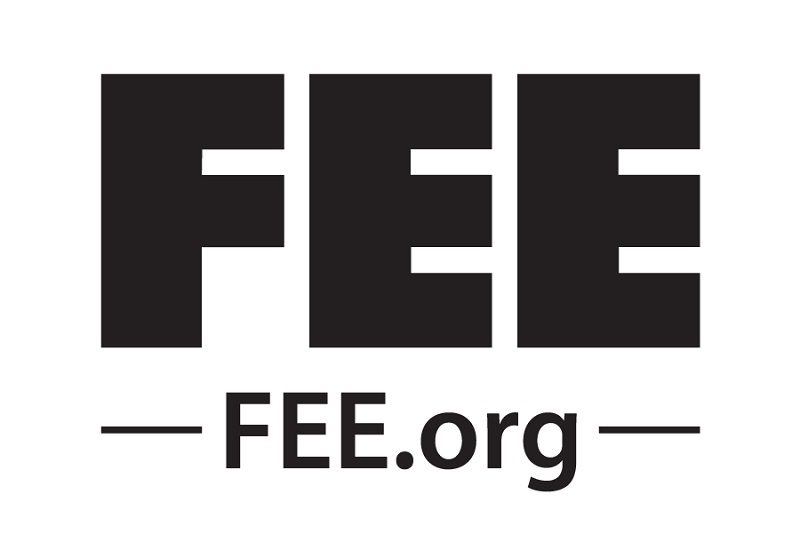The author Dorothy Sayers (1893-1957) once observed that one of the downsides of the modern age is that humans are ill-equipped to resist an endless onslaught of messaging (the “incessant battery of words, words, words.”)
Literacy had expanded but the tools of reason, logic, and deduction were being lost even as humans were being exposed to mass media and near-constant advertising.
In a turn of phrase that would have made Doctor Strange proud, Sayers wondered if the conditions of the modern world had made humans “susceptible to the influence of advertisement and mass propaganda to an extent hitherto unheard of and unimagined.”
Sayers wrote those words in 1947, a year before George Orwell’s own dark premonitions on propaganda and control were published in his classic work 1984.
Sayers and Orwell were onto something, but the uncomfortable truth is that mass media has only amplified since their time. The average American today spends close to four hours a day “reading, listening to or simply interacting with media” on computers, tablets or mobile devices, one recent study found. For tweens, the figure is even higher: 4.5 hours. For teens, average screen time is higher still: 6.5 hours a day.
The inundation of media poses a threat to one of the essential qualities that makes humans human: individuality. To be fair, the individual has always struggled to survive the herd (to paraphrase Kipling); but in many ways mass media make this quest even more difficult. Today we’re endlessly bombarded with messaging, imagery, and ideology fighting for our attention, minds, and wallets.
We’re told what shows to watch and what books to read and which characters are problematic. We’re told what ideas and messages are okay, and which must be suppressed, expunged, or modified. We see which celebrities are punished for which transgressions.
For many it’s exhausting, confusing, and anxiety-inducing. Perhaps the worst part is that many individuals feel they have no choice but to follow the herd.
“The psychology of crowds is a fascinating thing,” Claire Lehman, the editor of Quillette recently observed. “Because most people are conformists, it seems pretty clear that once a certain number of ideologues take hold in an organisation or society, a tipping point is reached & the herd just follows along.”
Few today would deny this a challenge. It often seems the world today is one big, senseless crowd. But it’s important to remember a key truth: we don’t have to march to the beat of the crowd’s drum.
Here are 21 quotes on conformity and nonconformity that reveal the struggle to and the importance of remaining free in our own minds.
- “The individual has always had to struggle to keep from being overwhelmed by the tribe. If you try it, you will be lonely often, and sometimes frightened. But no price is too high to pay for the privilege of owning yourself.” – Rudyard Kipling, 1935 (this quote is often misattributed to Nietzsche)
- “Conformity is the jailer of freedom and the enemy of growth.” – President John F. Kennedy, 1961 address to the United Nations
- “I don’t give a damn what others say. It’s okay to color outside the lines.” – Jimi Hendrix (1942-1970), musician
- “It is easy in the world to live after the world’s opinion; it is easy in solitude after our own; but the great man is he who in the midst of the crowd keeps with perfect sweetness the independence of solitude.” – Ralph Waldo Emerson, Self-Reliance (1841)
- “Rebel children, I urge you, fight the turgid slick of conformity with which they seek to smother your glory.” – Russell Brand, My Booky Wook, 2008
- “Heresy is another word for freedom of thought.” – Graham Greene (1904-1991), author
- “Not all those who wander are lost.” – J.R.R. Tolkien, The Fellowship of the Ring (1954)
- “For nonconformity the world whips you with its displeasure.” – Ralph Waldo Emerson, Self-Reliance (1841)
- “The opposite of bravery is not cowardice but conformity.” – Dr. Robert Anthony, The Ultimate Secret to Total Self-Confidence
- “Whenever you find yourself on the side of the majority, it is time to reform (or pause and reflect).” – Mark Twain, notebook (1904)
- “All progress has resulted from people who took unpopular positions.” – Adlai Stevenson, Address at Princeton, 1954
- “Go your own way. Question everything. Accept nothing. Accept no dogma, no cant. There are too many people walking around thinking they’re sacred cows, and they’re only half right.” – Rosie DiManno (b. 1956), Canadian journalist
- “I think the reward for conformity is that everyone likes you except yourself.” – Rita Mae Brown (b. 1944), author
- “Every generation laughs at the old fashions, but follows religiously the new.” – Henry David Thoreau (1817-1862)
- “It is the individual only who is timeless. Societies, cultures, and civilizations―past and present―are often incomprehensible to outsiders, but the individual’s hungers, anxieties, dreams, and preoccupations have remained unchanged through the millennia.” – Eric Hoffer (1898-1983), moral philosopher
- “Perhaps, if one wishes to remain an individual in the midst of the teeming multitudes, one must make oneself grotesque.” – Salman Rushdie, Midnight’s Children
- “If I decide to be an idiot, then I’ll be an idiot on my own accord.” – Johann Sebastian Bach (1685-1750)
- “It is very nearly impossible to become an educated person in a country so distrustful of the independent mind.” – James Baldwin (1924-1987), author
- “Our wretched species is so made that those who walk on the well-trodden path always throw stones at those who are showing a new road.” – Voltaire (1724-1788)
- “Only a very small number of people are truly evil. But a very large number of people are conformists. To prevent evil on a mass scale it’s more important for us to ward against our own instinct to conform with the crowd than it is to worry about anything else.” – Claire Lehman, founding editor of Quillette
- “Somewhere ages and ages hence: Two roads diverged in a wood, and I—I took the one less traveled by, And that has made all the difference.” – Robert Frost, “The Road Not Taken”
Jon Miltimore
Jonathan Miltimore is the Managing Editor of FEE.org. His writing/reporting has been the subject of articles in TIME magazine, The Wall Street Journal, CNN, Forbes, Fox News, and the Star Tribune.
Bylines: The Washington Times, MSN.com, The Washington Examiner, The Daily Caller, The Federalist, the Epoch Times.
This article was originally published on FEE.org. Read the original article.
FEE’s mission is to inspire, educate, and connect future leaders with the economic, ethical, and legal principles of a free society. These principles include: individual liberty, free-market economics, entrepreneurship, private property, high moral character, and limited government.




















